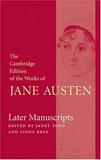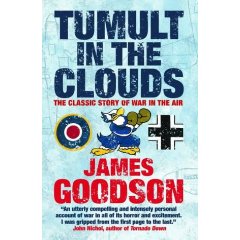Twilight: a Review
As far as I am aware I have nil credibility in this forum anyway so there's nothing to lose. I like this book.

The narrative voice is the heroine and smorgasbord Juliet, Bella Swan; this has a lot of advantages in short-circuiting discussions of character and motivation. It also enables Meyer to carry out the dance of the seven veils; the revelation of the plot secret, that the hero and his family have special dietary requirements is gradual because it is filtered through Bella’s eye view.
Bella Swan is a very observant heroine, yet remarkably slow to catch on, both useful traits in a narrator. Although young, she is accustomed to rejection and disappointment; her back history is that of an outsider, thanks partly to her extremely poor physical co-ordination which rules her out for sport, cheer-leading, dancing etc. This has created self-esteem issues, helping to explain why a beautiful 17 year old high-school girl is unaccustomed to male admirers or being the centre of attention, and to explain why she is so well placed to observe and report. It also explains the newness, the unfamiliarity of courtship and first love, a thing fraught with complications even when your inamorata isn’t feeling tempted to just add salt and chow down. The novel's central themes are unfamiliar sexual tension and all-too-familiar alienation from the rest of the pack. Above all, our access to Bella’s inner life enables us to make sense of her extremely erratic, illogical and self-endangering behaviour and to appreciate that it expresses single-mindedness, determination and courage in addition to the fact that she is rather foolish.
The mutual eclarissement between the two lovers and the long conversations whereby they come together emotionally in spite of the rather difficult circumstances is a well observed process and leavened with various touches of dark humour. For example, Bella makes a day out in the forest with her new beau, fully aware that it will go well, their love will be affirmed, their bond of mutual trust will be forged; or it will go badly, and Edward will be left to tidy up the remains of a very satisfactory meal. She faces up to this 50/50 situation with convincing fibre because, though she isn’t terribly wise, she is full of courage and she wants her happiness badly enough to take the chance. What makes this story work is that Meyer has focused on a point which classic Gothic vampire fiction ignores or plays down; all vampires were once human, and is not illogical to suppose that a vampire could retain human traits and that if the vampire was once a good person, he or she might feel conflicted between the new vampire self and the residual human self.
I haven’t seen the film yet: that’s coming. I can already guess that Kirsten Stewart had a tough row to hoe, playing Bella; Alice Cullen, even though it’s only a supporting part, is the prize female role in this story, because she gives the actress something to really work with. First person narrators are a real challenge for actors and screen-play writers alike; in this case it’s worse because the inner voice of Bella’s character is so key to understanding why she behaves the way she does. Edward frequently jokes rather acidly about the lengths he is forced to go to just to keep her alive; there’s no denying she is her own worst enemy, even after James makes his appearance. This does help to explain part of why she puts her fate in Edward’s hands in the forest-meadow passage, because she is grimly aware that without his intervention, she would have been killed on two separate occasions even before she worked out that he is a vampire. In a sense, her life is in his hands anyway and she is merely being pragmatic when she goes into the forest alone with him without even telling anyone where she’s going or who she’s with. By this stage it’s way too late to run away or hide. Fatalism is one of Bella’s chief character traits and the main source of her great courage; it also leads her into some remarkably counter-intuitive decisions...
However, Bella is a little bit put out to discover that the other Cullens have a betting pool on which way Edward will jump; that’s just not in good taste.:mrgreen:
The story continues to be very interesting as Bella meets her new boyfriend’s family and tentatively begins to bond with this group of vampires. Again, the dark humour leavens the book as the absurdity of it all is turned to advantage. Bella is crossing the drawbridge of Dracula’s Castle knowingly and of her own free will; and her biggest fear is of social failure, that the vampires will disapprove of her. This is, of course, classic teenage angst, but with a bit of a Gothic twist.
"It was hard to decide what to wear. I doubted there were any etiquette books detailing how to dress when your vampire sweetheart takes you home to meet his vampire family."
The vampires turn out to be a wealthy white collar middle class family with all the toys of affluence but with some of the hang-ups and maladjustments of affluence as well. They even have the recognisable sibling rivalries and a touching initial awkwardness in company; it dawns on Bella that the Cullens aren’t used to inviting guests (except Undead ones) and that they are, touchingly, a little bit shy themselves, though not quite for the usual reasons.
Carlisle Cullen, the town hospital’s senior doctor, and Esme Cullen, his wife and companion, are the heads of the Cullen family. The heart of this family group turns out to be little sister Alice Cullen, married to Jasper and radiant with a strangely endearing humanity in spite of being a vampire. Alice Cullen is the most interesting character in this story. She is the one who judges correctly that Edward will not put Bella in between two slices of bread and add horse-radish. She is the one who first consciously decides to adopt Bella and to open the door at least to an auxiliary membership of the group; the qualifications for full membership are obvious enough. The physical act of pitching in the very important baseball game passage symbolises Alice’s role as the family pivot, how critical she is to the balance and harmony of the Cullen family and how in various ways all the others depend on her. Her second-sight is a power vital to their physical safety, just as is Edward’s ability to read minds, but what Alice also has is a great power of empathy, an ability to perceive and interpret the emotions of others, including her own family. She is the one who first knows that Bella has opened a closed door inside Edward, has completed his emotional growth, the growth which being made into a vampire arrested in him for 90 years. She loves her brother and is thrilled to see him starting to experience the same happiness she already has with her husband, Jasper, who not only loves her but is deeply in awe of her invincible goodness of heart.
The interesting thing about Alice is that she is good when she could easily be very very evil and this conscious choice was not the soft option, but the right one for her, the reason why she is never haunted by the remorse which Edward and Jasper, who have not always been vegetarians, are forced to cope with. Alice has adopted Jasper directly by marrying him; he gets the guardian angel who gives him the strength and the motivation to rediscover his humanity, whereas she gets the handsome prince, the man of her dreams. It’s a damn good bargain for both of them. It is part of the novel's underlying theme of Fate versus Choice; Good versus Evil; salvation or Damnation: each of these two was the salvation of the other.
But, unlike Emmett, who has always had Rosalie, and Rosalie, who was not a lone vampire for long, Alice has known loneliness much more intimately than she would wish and is well placed to understand what Bella means to Edward. Edward has always been the odd one out within the family, the one wrestling with his demons unsupported by love, except the love of his adopted parents and of his kid sister who knows his pain better than any of the rest. This is why Alice sponsors Bella against the puzzlement of the others and the frank opposition of Rosalie; Bella is the missing piece in Edward’s jigsaw puzzle, just as Jasper was to her. Without Alice, Bella probably could not gain admission to this family group. This gradual and ongoing rearrangement of the group to include Bella is a process which is well described and observed in the book.
The novel’s resolution involves a suspenseful clash with a pair of carnivorous hunter-vampires who covet Bella the same way Edward did, but aren’t quite as nice as he is, and whose leader, James, gets his comeuppance when Alice outwits him and his accomplice and manages to sick Emmett and Jasper onto him as he deserves. But this is a character-driven story, not over-reliant on action to keep the pot boiling. It’s actually a really intelligent book and also a good entertainment.









